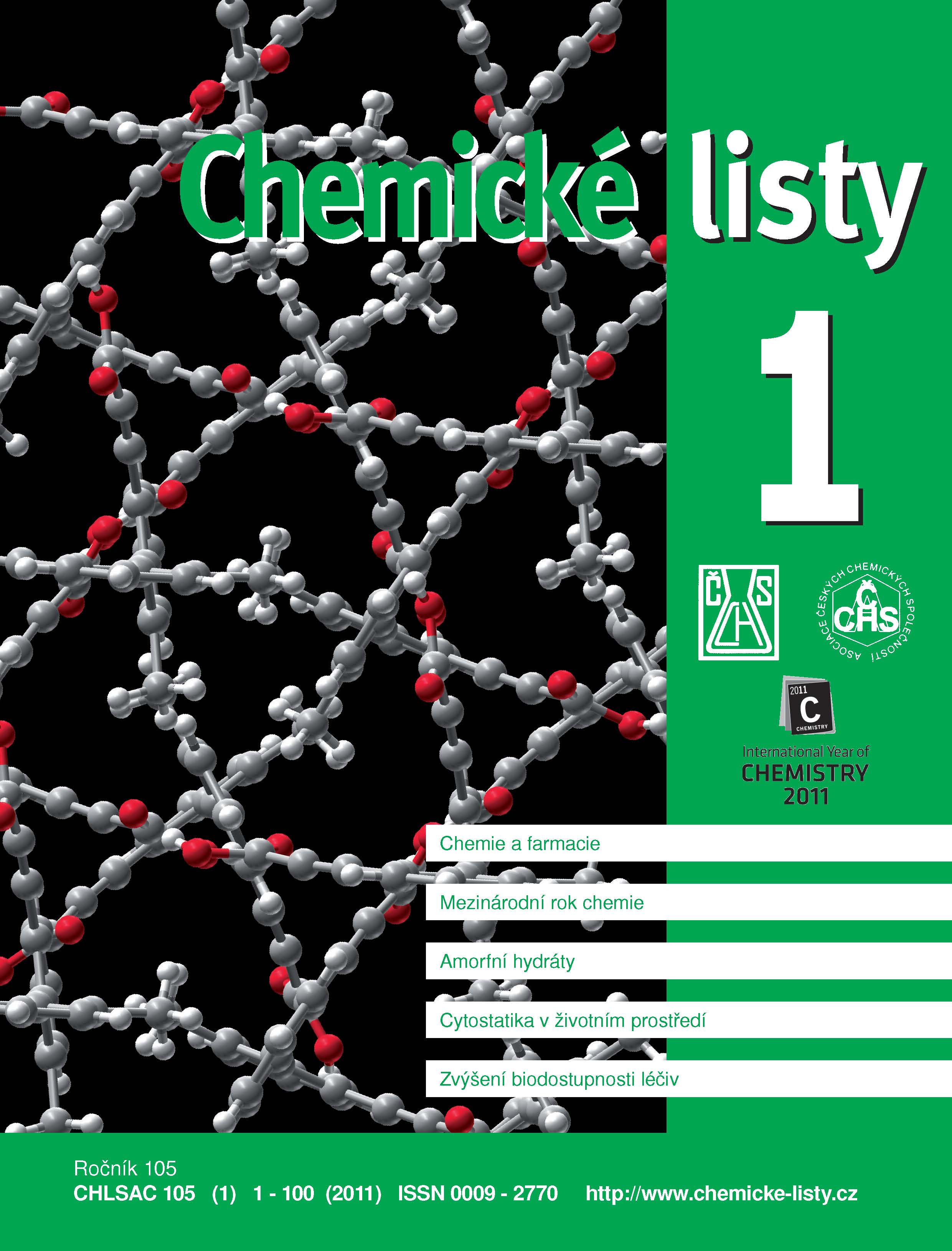Poly(α-hydroxykyseliny) jako nosiče léčiv
Klíčová slova:
biodegradabilní polyestery, plastifikace, degradace, léčivé přípravkyAbstrakt
Biocompatible polymers derived from α-hydroxyacids, in particular homopolymers and copolymers of lactic and glycolic acids, are widely used in surgery, tissue engineering and drug formulation. Their polycondensation with polyhydric alcohols yields degradable low-molecular-weight branched oligoesters. Polymer plasticizers improve processibility, decrease brittleness and impart mechanical endurance to the oligoesters. Out of many plasticizers used in polymers, only a few of them have been approved for pharmaceutical applications. The type and amount of plasticizers influence the degradation time of polymers and thus the drug release. Biodegradable polyesters are currently used in parenteral drug delivery as solid implants, microparticles and in-situ implants. Homopolymers and copolymers of lactic and glycolic acids are suitable drug carriers for the purpose in treatment of cancer, drug addiction, contraception and vaccination as well as for the controlled release of growth factors in tissue engineering.





